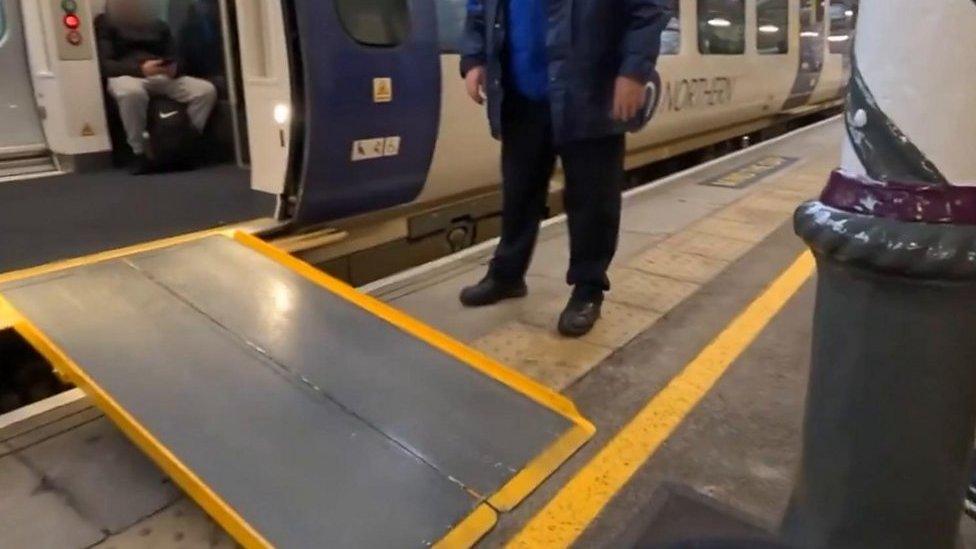'My traumatic journey to London in my wheelchair'
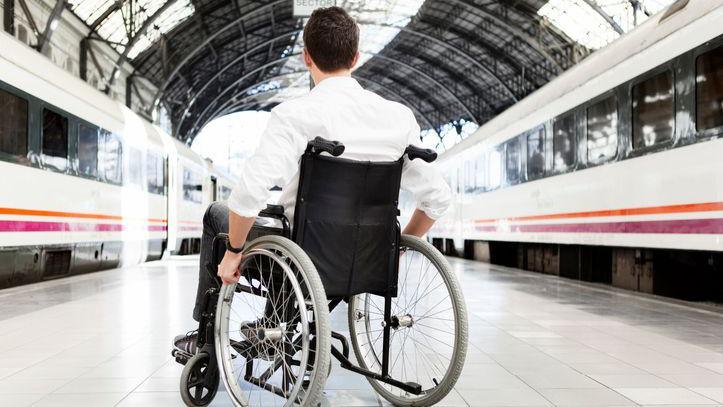
Wheelchair users have contacted the BBC about the problems they face travelling on trains.
- Published
A woman has spoken of her "traumatic" train journey to London in a wheelchair, saying she was left stranded on a train.
Jacqui Darlington, who has been using a wheelchair since June, is one of a number of people to contact the BBC after Baroness Tanni Grey-Thompson revealed that she was forced to "crawl off" a train at London's King's Cross.
The former Paralympian's experience prompted others with a disability to share their stories of the challenges they face when travelling by train.
Network Rail said the situation was "not good enough", adding it is "determined to work with all train operators to improve".
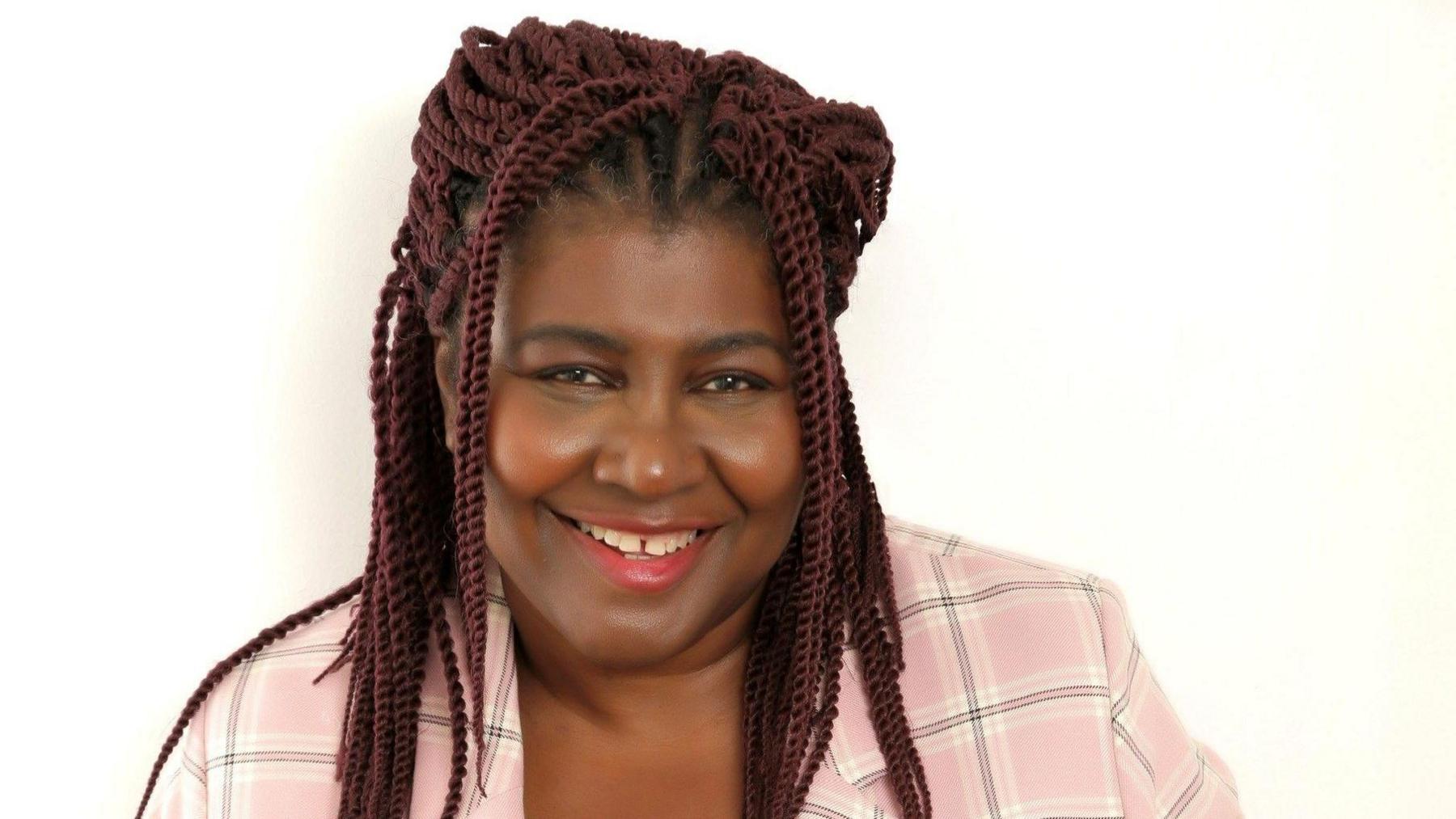
Jacqui Darlington said her experience at Kings Cross had left her in tears.
Ms Darlington told the BBC that despite booking passenger assistance, she was "forgotten" and "left unable to get off the train" when it entered King's Cross.
With no one there to help her, the train left the station with her still onboard.
"The fear, panic and anxiety I felt in those few minutes was unbelievable and is something that I cannot put into words," she said.
Ms Darlington, who runs a group for adults with additional needs, was helped to return to King's Cross but said the whole process was "traumatic".
"My journey using my wheelchair to London had me in tears until I reached my destination," she said.
'Dragging myself off the train'
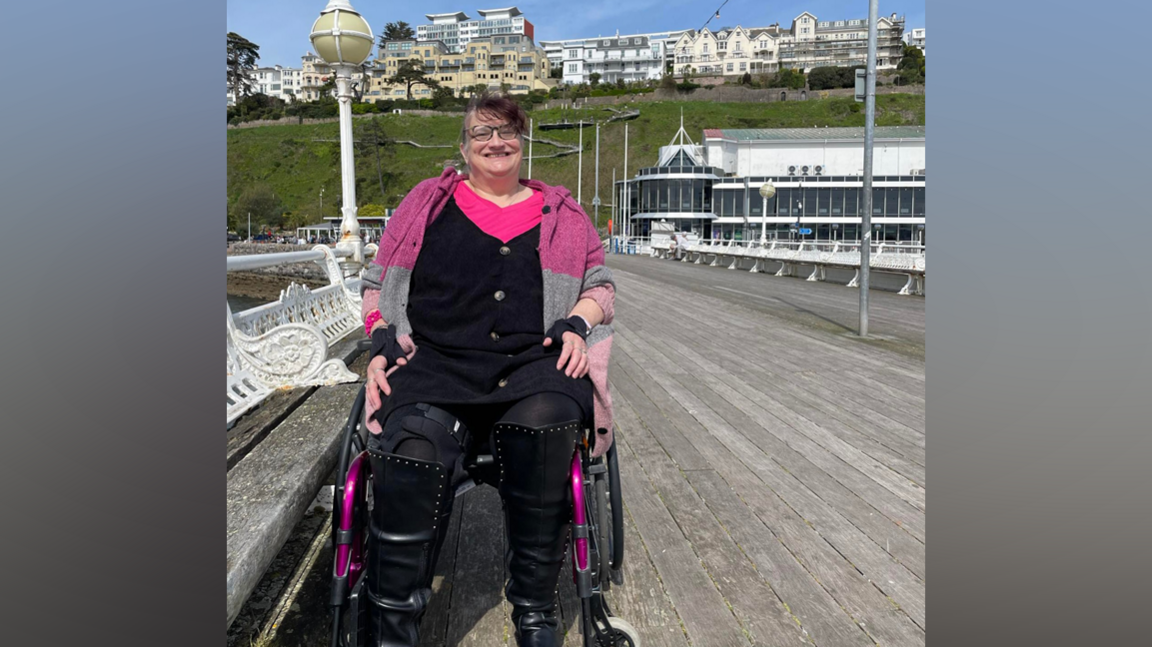
Dr Ali Carre says has not had "a single journey that has gone smoothly" in the last few years.
Dr Ali Carre told the BBC that "despite being fiercely independent" as a wheelchair user, repeated problems travelling on trains have "totally put me off train travel".
Dr Carre described how, on one occasion, the booked passenger assistance service failed to meet her at Reading.
The retired psychiatrist said this meant she was left "dragging myself off the train and onto platform with my wheelchair upside down".
"I really hurt my hand and arm, which ruined my holiday as a manual wheelchair user," she said.
Dr Carre also described problems at Paddington station, including being left on a train which was suddenly taken out of service.
All the other passengers left, said Dr Carre, but she was left alone.
"No one came to help," she said. "I started pushing the emergency button for more than 15 mins before someone came."
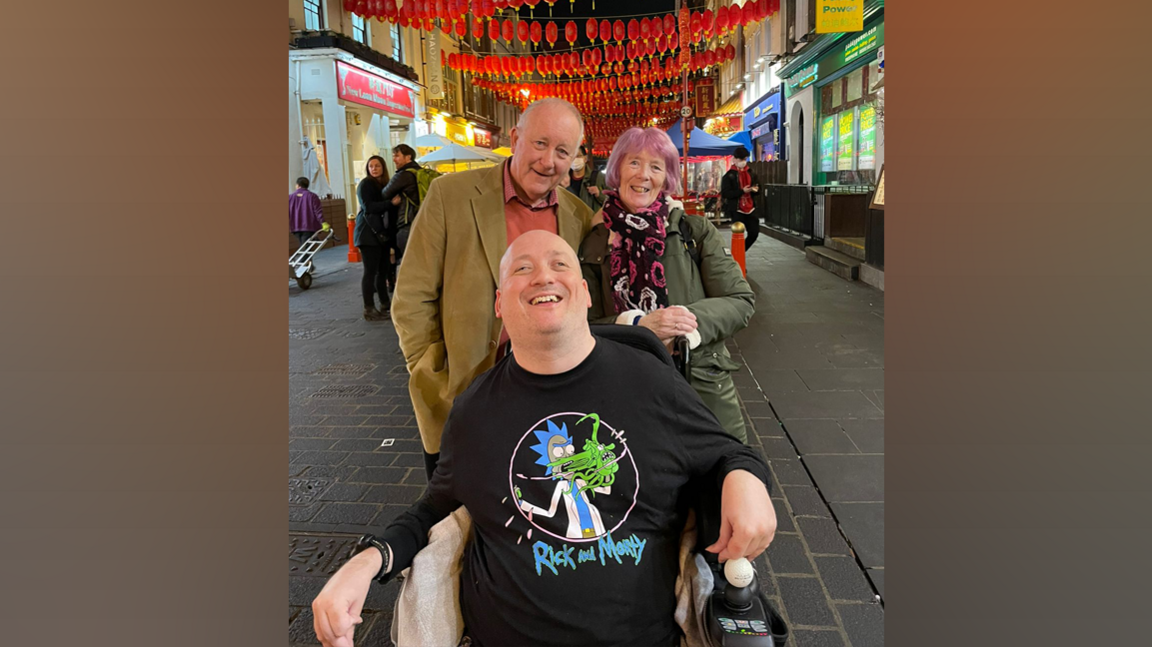
Kathleen, her husband David and their son Christopher say they are made to feel like a 'thorn in the side' of station staff.
Kathleen Hogg said her family has experienced problems "many many times".
"My son has cerebral palsy and is quadriplegic and is quite a large man, we are in our 70's and are unable to lift him, so as a consequence we have to book assistance," Ms Hogg said.
She added that problems usually occur when the family heads to London's West End at Christmas to see a show.
"We make sure we book ahead and inform station staff," Ms Hogg said, but added that passenger assistance services are often not ready to meet them.
Ms Hogg said this leads to "a stressful situation".
"I usually hold the doors so that the train cannot leave and my husband gets off to seek a rail person, often you feel a nuisance," she said.
Some station staff "can be really nice", but "you are made to feel a thorn in their side," she added.
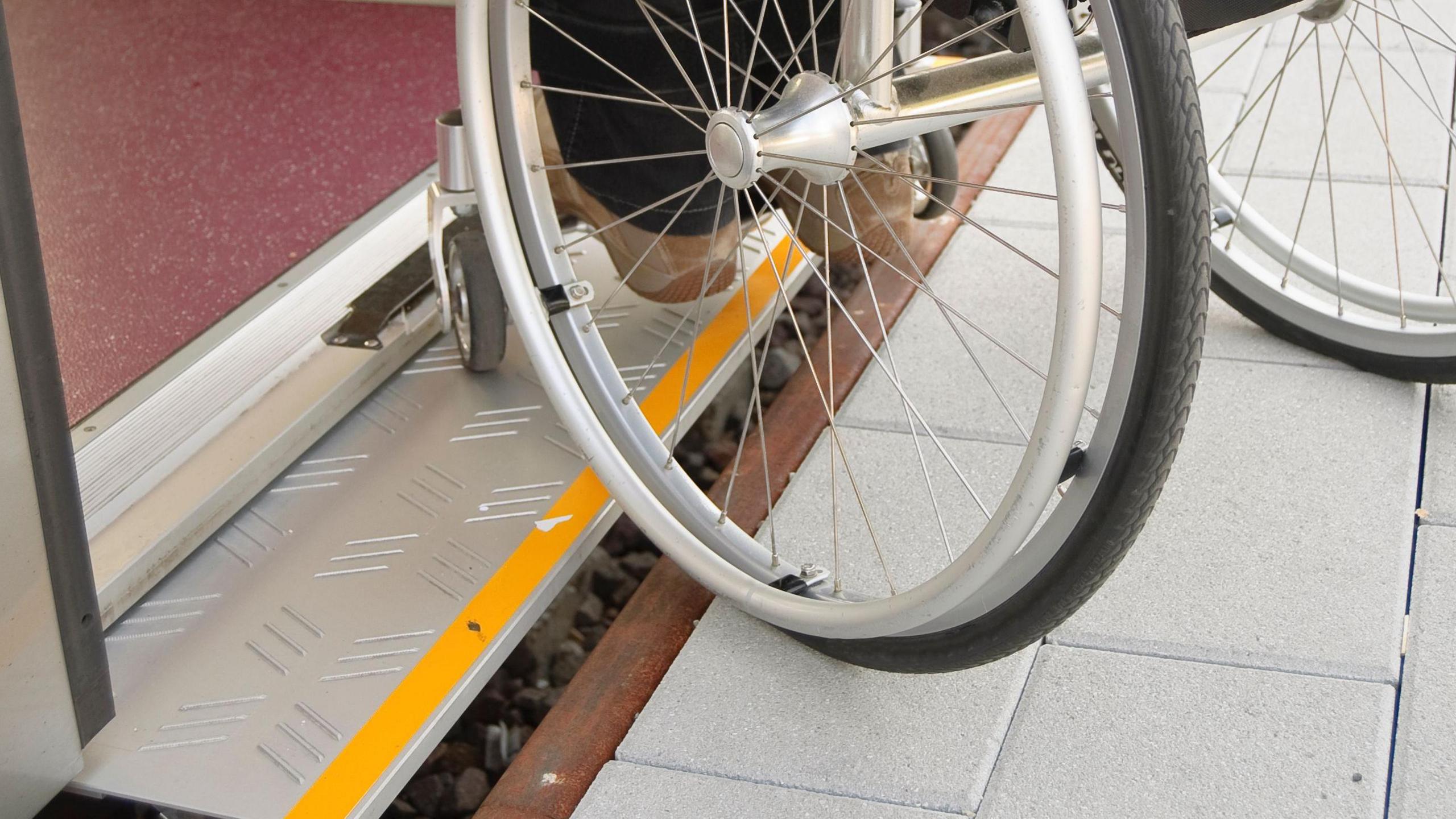
Many platforms are not level with the trains that pass through, so a wheelchair ramp is required
'It’s not good enough'
A Network Rail spokesperson said: "We’re striving to provide an accessible railway for everyone, yet the way ‘Passenger Assist’ let Baroness Grey-Thompson down on Monday night at King’s Cross station, and news of others poor experiences shows us, and the industry as a whole, that we have much more to do.
"While well over 90% of passenger assistance requests made last year were completed to the letter, we strive to do better and recognise the anxiety and distress caused when people are left without help.
"It’s not good enough. We’re determined to work with all train operators to improve this vital area of our work so that everyone can have confidence in being able to use the railway."
Listen to the best of BBC Radio London on Sounds and follow BBC London on Facebook, external, X, external and Instagram, external. Send your story ideas to hello.bbclondon@bbc.co.uk, external
- Published27 August 2024

- Published14 November 2023
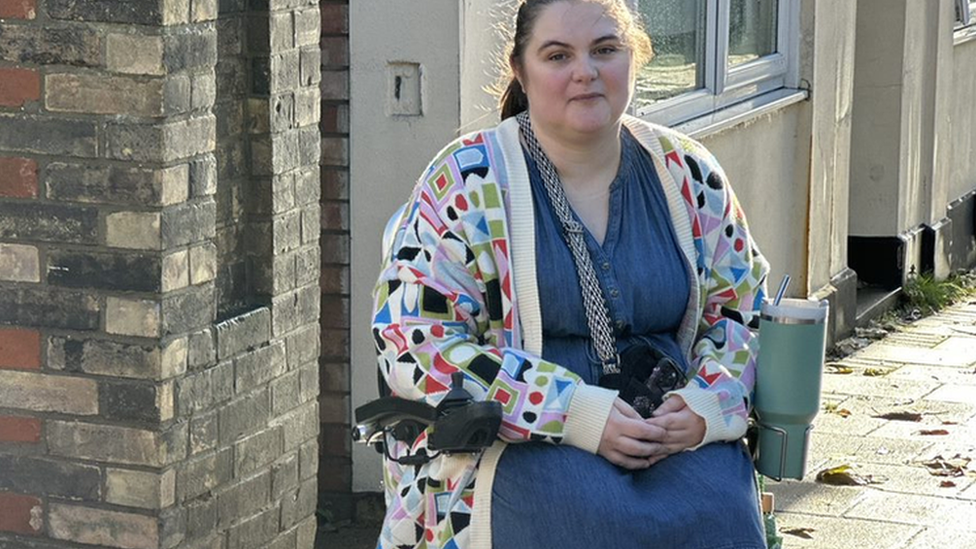
- Published8 May 2024
